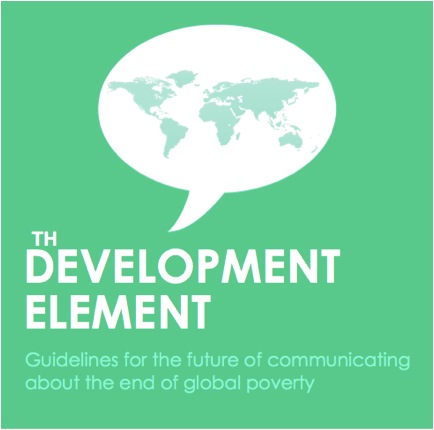Do we need more risk-taking in international development communications?
A new publication suggests organizations’ communications strategies can do more to support their mission.
According to many “horizon scanning” reports for international civil society over the past few years, there are major disruptions ahead in the aid sector. Many predict that if large international organizations are not prepared to adapt, they will not survive.
What is the major pain point in making changes? If we’re honest, it’s fundraising. If we portray our work differently, there’s a fear that we will hurt our organization’s bottom lines. If we stop relying on the “tried and true” means of communicating with our supporters, will the money stop flowing?

We’ve seen recently how one well-crafted message or gimmick can raise awareness of a cause and increase donations at the blink of an eye. At the same time, in the case of global development, a simple narrative can tear at people’s dignity and self-determination, and discourage real investment in a country’s people or economy.
My first “International Development Communications” class at the Georgetown University Public Relations & Corporate Communications Master’s Program set out in the Spring 2014 semester to inquire if it was time for us to take more risks in our communications about global development. We asked: Can we paint a fuller picture of how development occurs? Why does this matter?
What we came up with was this: The Development Element: Guidelines for the future of communicating about the end of global poverty. We must be onto something because in its draft form, the guidelines written by myself and my students have already been viewed over 3,500 times. It seems people are hungry to change international organizations’ communications strategies, which once grew out of a charitable fundraising model, so that their public face is no longer at odds with their programs and their mission.
Join us online using #IntlDevComms on Thursday, September 11th for the publication’s launch and the conversation on how a new generation of development and communications professionals are attempting to embrace nuance without turning the public off.
You can also help us spread the word about “The Development Element” publication in four ways:
1) Share the publication via your social media channels!
2) Give the guide directly to colleagues both inside and outside of your organization who are communicating about global poverty to external audiences.
3) Join my current class for a Twitter Chat at 6pm EST on Thursday, September 11th using #IntlDevComms.
4) Write a blog post about if/how communicators are shaping the #globaldev narrative, your organization’s approach to international development communications, and/or your personal perspective on our publication.